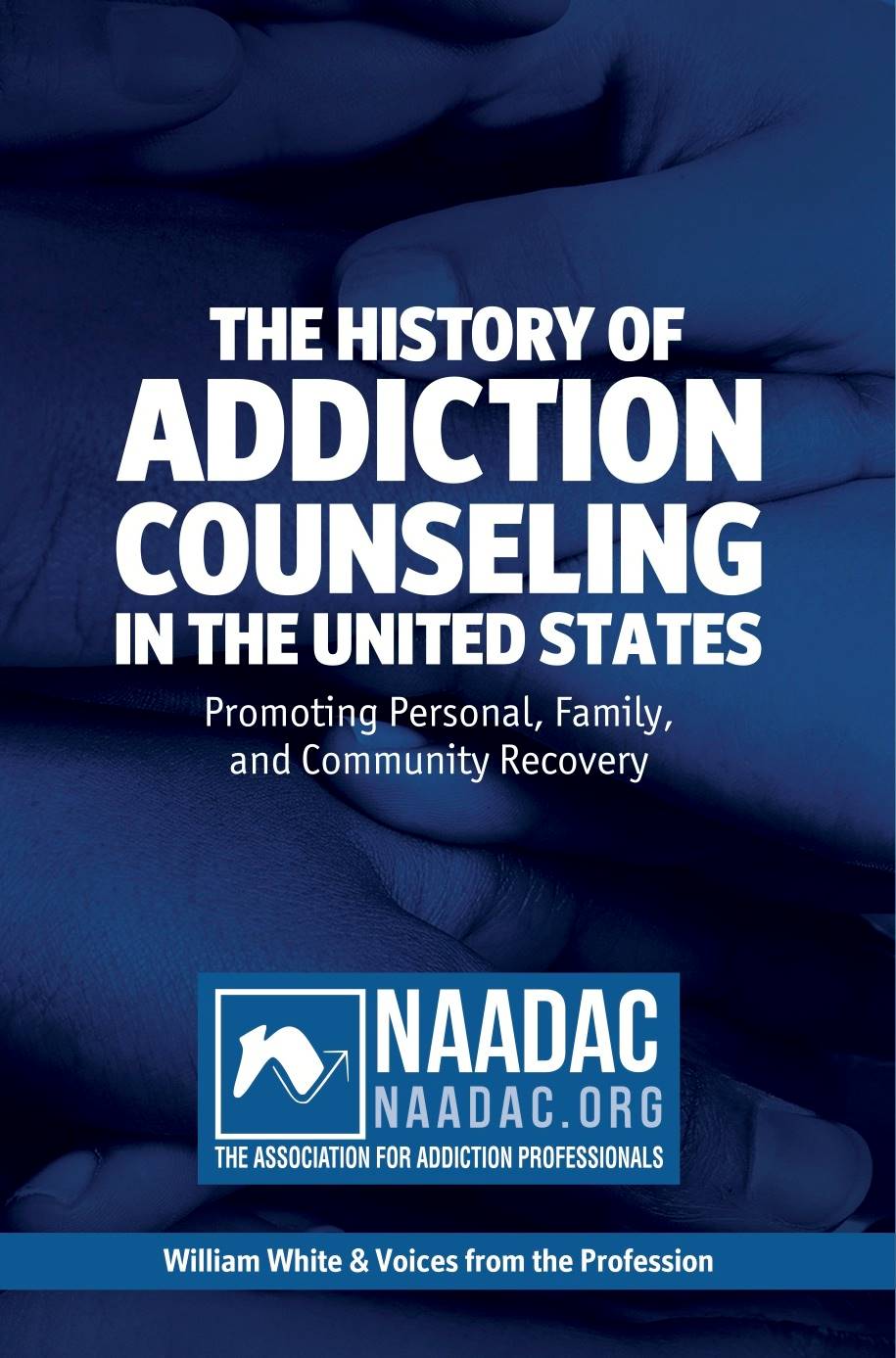 Addiction counseling has rich historical roots--spanning early Native American recovery advocacy leaders, 19th century temperance missionaries, reformed men working within early inebriate homes and asylums, lay alcoholism therapists, the "paraprofessional" counsels of the mid-twentieth century--all contributing to the birth and evolution of modern addiction counseling as a specialized profession. It was the dream of Mel Schulstad and other modern pioneers of addiction counseling that a book would one day be written detailing the history of addiction counseling. To that end, NAADAC: The Association of Addiction Professionals established a NAADAC archives committee in the mid-1990s whose members began conducting oral history interviews with people who had played prominent roles in the professionalization of addiction counseling. Now, nearly 20 years later, that dreamed of book has rolled off the presses and was placed in the hands of more than 700 addiction professionals at NAADAC's 40th anniversary conference in Seattle, Washington. It was my great honor to be selected to author this book, which also contains the voices of more than 90 leading addiction professionals.
Addiction counseling has rich historical roots--spanning early Native American recovery advocacy leaders, 19th century temperance missionaries, reformed men working within early inebriate homes and asylums, lay alcoholism therapists, the "paraprofessional" counsels of the mid-twentieth century--all contributing to the birth and evolution of modern addiction counseling as a specialized profession. It was the dream of Mel Schulstad and other modern pioneers of addiction counseling that a book would one day be written detailing the history of addiction counseling. To that end, NAADAC: The Association of Addiction Professionals established a NAADAC archives committee in the mid-1990s whose members began conducting oral history interviews with people who had played prominent roles in the professionalization of addiction counseling. Now, nearly 20 years later, that dreamed of book has rolled off the presses and was placed in the hands of more than 700 addiction professionals at NAADAC's 40th anniversary conference in Seattle, Washington. It was my great honor to be selected to author this book, which also contains the voices of more than 90 leading addiction professionals.
The History of Addiction Counseling in the United States (521 pages, $10 plus shipping) contains five chapters on the birth and evolution of addiction counseling in the U.S.; three chapters on the history, core functions, and contributions of NAADAC; and a concluding chapter on lessons learned from addiction counseling pioneers, including reflections on the distinguishing characteristics of addiction counseling. Below are some of my own thoughts on this latter question.
There are four defining premises of addiction counseling that historically separate the addiction counselor from other helping roles. These premises are that: 1) severe and persistent alcohol and other drug problems constitute a primary disorder rather than a superficial symptom of underlying problems, 2) the multiple life problems experienced by AOD-impacted individuals can be resolved only within the framework of recovery initiation and long-term maintenance, 3) many individuals with high problem complexity (biological vulnerability, high severity, co-morbidity) and low "recovery capital" (diminished internal assets, family and social support) are unable to achieve stable recovery without professional assistance, and 4) professional assistance is best provided by individuals with special knowledge and expertise in facilitating the physical, psychological, socio-cultural and often spiritual journey from addiction to recovery.
The defining essence of a profession is a distinctive body of knowledge and techniques developed through education, training and supervised experience and not available within other service settings. Such knowledge and service technologies have evolved over the past five decades and now constitute the core functions of addiction counseling as practiced in the United States and around the world....What the addiction counselor, at his or her best, contributes that is lacking in other human service disciplines is a detailed knowledge of local cultures of addiction and cultures of recovery. That knowledge is crucial in facilitating clients' journeys between two psychological and social worlds.
What the addiction counselor knows that other service professionals do not is the very soul of the addicted--their terrifying fear of insanity, the shame of their wretchedness, their guilt over drug-induced sins of omission and commission, their desperate struggle to sustain their personhood, their need to avoid the psychological and social taint of addiction, and their hypervigilant search for the slightest trace of condescension, contempt or hostility in the posture, eyes or voice of the professed helper....If there is a therapeutic stance most unique to addiction counseling, it is perhaps the virtue of humility. While seasoned addiction counselors muster the best science-based interventions, they do so with an awareness that recovery often comes from forces and relationships outside the client and outside the therapeutic relationship. It is in this perspective that the addiction counselor sees himself or herself as much a witness of this recovery process as its facilitator. In the end, the job of the addictions counselor is to find resources within and beyond the client (and the counselor) that can tip the scales from addiction to recovery. To witness (and be present within) that process of transformation is the most sacred thing in the field.
Addiction counseling is coming of age as legions of men and women extend themselves each day to heal individuals, families, and communities. To those who have labored in this special ministry, we offer you your history. Those interested in obtaining a copy of The History of Addiction Counseling in the United States may contact NAADAC at 1-800-548-0497 or click here to order the book online.
Happy Birthday, NAADAC. We could not have journeyed this far without you.